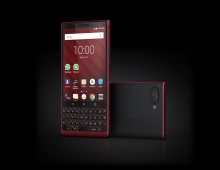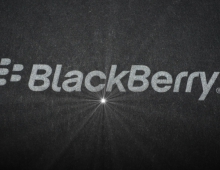
BlackBerry Says Net Neutrality Rules Should Mandate Apple To Bring iMessage to All Platforms
BlackBerry CEO John Chen believes the issue of net neutrality requires the U.S. government to not only promote and protect neutrality among wireless and broadband carriers, but also among app and content providers. In blog post to Blackberry's web site, Chen that President Obama and FCC Chairman Tom Wheeler should focus on more than just the carriers.
Most discussion related to "net neutrality" has focused on telecommunications carriers and how they operate and manage their physical networks. Neutrality advocates want to prohibit carriers from creating paid, prioritized "fast lanes," and from slowing down or "throttling" customers using excessive bandwidth.
Chen says that policymakers should demand openness not just at the traffic/transport layer, but also at the content/applications layer of the ecosystem.
"Banning carriers from discriminating but allowing content and applications providers to continue doing so will solve nothing," Chen says.
Key to BlackBerry's turnaround has been a strategy of application and content neutrality. For example, the company opened up its proprietary BlackBerry Messenger (BBM) service in 2013, making it available for download on its competitors' devices. Tens of millions of iPhone and Android customers around the world have since downloaded BBM and are enjoying the service free of charge. Last year the company introduced the secure BES12 mobile device management software, once again designed to manage not just BlackBerry phones but also available for enterprises and government agencies whose employees use iPhone and Android devices.
"Unfortunately, not all content and applications providers have embraced openness and neutrality. Unlike BlackBerry, which allows iPhone users to download and use our BBM service, Apple does not allow BlackBerry or Android users to download Apple's iMessage messaging service. Netflix, which has forcefully advocated for carrier neutrality, has discriminated against BlackBerry customers by refusing to make its streaming movie service available to them," Chen says.
"Many other applications providers similarly offer service only to iPhone and Android users. This dynamic has created a two-tiered wireless broadband ecosystem, in which iPhone and Android users are able to access far more content and applications than customers using devices running other operating systems. These are precisely the sort of discriminatory practices that neutrality advocates have criticized at the carrier level," he added.
Chen concluded that neutrality must be mandated at the application and content layer.
"All wireless broadband customers must have the ability to access any lawful applications and content they choose, and applications/content providers must be prohibited from discriminating based on the customer's mobile operating system."





















